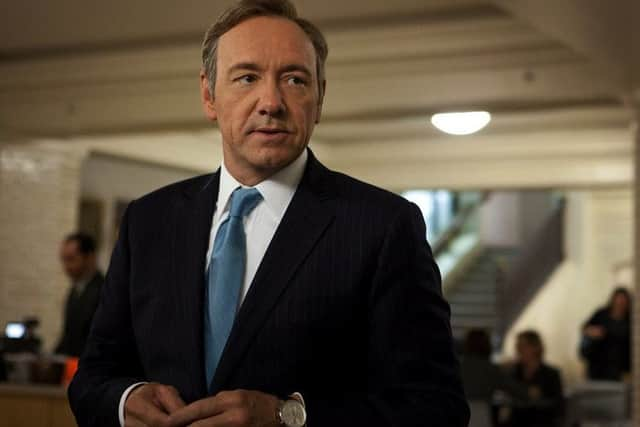Chris Phillips: No place at work for sexual misconduct


In the UK, this was followed by the resignation of Defence Secretary Sir Michael Fallon, further allegations from Westminster and the tragic suicide of Welsh government minister Carl Sargeant. We haven’t heard the last of these kinds of complaints and the renewed focus on the impact of sexual misconduct serves to remind employers of the role they must play in promoting a culture that guards against any such conduct in the workplace.
Recent surveys reveal almost 40 per cent of British workers have experienced some form of sexual harassment. The majority of these incidents happen to women, often instigated by a manager or senior colleague.
Advertisement
Hide AdAdvertisement
Hide AdOver 60 per cent of victims confirmed they chose not to report incidents for fear of affecting their career prospects. This means businesses can be unaware of sexual misconduct which directly impacts on employee wellbeing and sustains a culture of fear and even victim-blaming.


When incidents are reported, employers face the task of investigating allegations which are often hard to prove. Allegations can range from jokes, innuendo and ‘banter’ to more overt inappropriate, offensive comments and physical contact. They all need to be handled with diligence and sensitivity and staff need to have the confidence to call out such behaviour.
The Equality Act 2010 defines sexual harassment as unwanted conduct related to sex (or of a sexual nature) which has the purpose or effect of either violating another person’s dignity, or creating an intimidating, hostile, degrading, humiliating or offensive environment for that person. So the perspective of the alleged victim is key. One person’s flirtatious or risqué humour can be perceived as offensive. Even an innocent compliment about a colleague’s dress may be taken as an inappropriate sexual advance.
The conduct does not need to be a repetitive act and the victim need not have expressed that the conduct was unwanted. A single act can be unlawful harassment. The definition also means establishing harassment can be difficult, undoubtedly a factor in the reluctance of employees to report it.
Uninvited physical contact and overtly sexual comments are easier to identify as sexual harassment. The ambiguity of the law occurs when verbal remarks are made that are perhaps only intended as ‘locker-room banter’.


We now work in a world where social and professional relationships are blurred by the frequency with which we interact outside working hours, via social media or otherwise. It’s common for employees to have close relationships with those they consider friends as well as co-workers. However, just because some share what they consider ‘banter’ with each other outside work doesn’t mean such behaviour can’t also offend.
Businesses need to know harassment claims can be raised by staff against both perpetrator and their employer. The festive period is a notorious minefield for business. With the office-party season approaching, the risk of harassment allegations resulting from drunken incidents inevitably increases as colleagues head for the Christmas lunch, night out or drinks party.
Employers should ensure that they have up-to-date policies on bullying, harassment and dignity at work that make clear to staff any behaviour that could be perceived as harassment will be subject to investigation and potentially disciplinary action. It should be made clear to staff that these policies will apply to conduct which occurs in the workplace and at work events off site as well as online or via social media outside normal working hours.
Advertisement
Hide AdAdvertisement
Hide AdAll employees should feel re-assured they can raise concerns formally or informally with HR in confidence and without fear of retaliation. If allegations are made, employers should always treat these complaints with seriousness and sensitivity. It is vital for managers to investigate any allegations impartially, thoroughly and in a timely manner not only to ensure employees feel safe, valued and respected but also to reduce excessive staff turnover, retain talent and minimise all the risks that come with discrimination and harassment claims.
Chris Phillips is a partner with Loch Employment Law in Edinburgh and is accredited by the Law Society of Scotland as an Employment Law Specialist